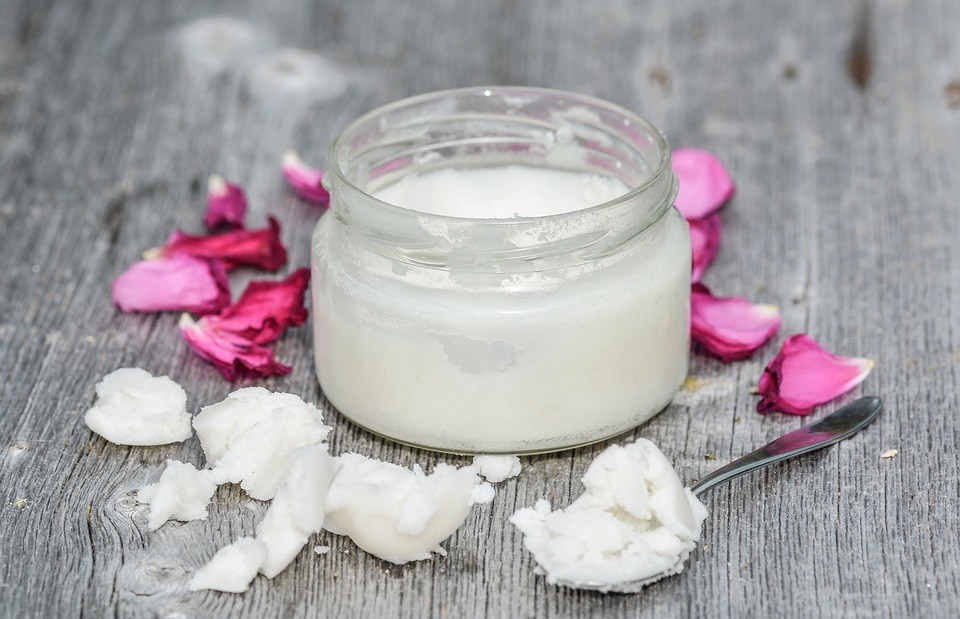This article delves into the safety and potential benefits of coconut oil for cats. We'll explore the nutritional profile of coconut oil, its potential health advantages, and the risks associated with its use. We'll also provide guidance on how to administer coconut oil to your feline friend safely and effectively. By the end of this article, you'll have a clear understanding of whether coconut oil is a suitable supplement for your cat and how to use it responsibly.
Part 1: Understanding Coconut Oil

1.1 The Origins and Properties of Coconut Oil
- Coconut oil is extracted from the kernel of mature coconuts, a tropical fruit grown in abundance in warm climates.
- The oil is obtained through a process of pressing or extracting the coconut meat, resulting in a creamy, white substance with a distinct aroma.
- Coconut oil is primarily composed of saturated fats, specifically medium-chain triglycerides (MCTs), with lauric acid being the most prevalent. This unique composition gives it its characteristic properties.
1.2 The Nutritional Profile of Coconut Oil
- Coconut oil is rich in medium-chain triglycerides (MCTs), specifically lauric acid, which are rapidly absorbed and metabolized by the body, providing a quick energy boost.
- It also contains small amounts of other fatty acids, including myristic acid, palmitic acid, and oleic acid.
- While often categorized as a saturated fat, coconut oil contains some beneficial unsaturated fats, particularly monounsaturated fats.
- It also boasts a moderate amount of vitamins, including vitamin E, which has antioxidant properties and plays a role in protecting cells from damage.
Part 2: Potential Benefits of Coconut Oil for Cats

2.1 Supporting Skin and Coat Health
- Coconut oil is known for its moisturizing and conditioning properties, effectively nourishing a cat's skin and coat.
- It can help to improve the condition of dry, flaky skin, making the coat smoother and shinier.
- Coconut oil's anti-inflammatory properties may help soothe skin irritations, reducing itching and scratching, which can be beneficial for cats with allergies or skin conditions.
- Some anecdotal evidence suggests that lauric acid in coconut oil may deter fleas and other parasites.
2.2 Supporting Digestive Health
- The MCTs in coconut oil are easily digestible by cats, making it a valuable source of energy, especially for cats with digestive issues.
- Coconut oil can promote healthy digestion by supporting the growth of beneficial bacteria in the gut, contributing to a balanced gut microbiome.
- Its anti-inflammatory properties might help ease symptoms of inflammatory bowel disease (IBD) in cats, although more research is needed.
- Lauric acid, a predominant MCT in coconut oil, exhibits antimicrobial and antiviral properties, potentially strengthening a cat's immune system.
- Coconut oil's anti-inflammatory effects can also contribute to overall immune function by reducing inflammation throughout the body.
- While research on the specific benefits of coconut oil for feline immune health is limited, it may provide a supplementary role in supporting overall well-being.
- While generally considered safe for cats in moderation, consuming excessive amounts of coconut oil can lead to digestive upset, including diarrhoea, vomiting, and abdominal pain.
- Coconut oil is high in calories, so overfeeding can contribute to weight gain, particularly for cats prone to obesity.
- Some cats may experience allergic reactions to coconut oil, manifesting as skin rashes, itching, or swelling.
- Coconut oil can also affect blood sugar levels, so it should be avoided for cats with diabetes.
- Always consult your veterinarian before introducing coconut oil to your cat's diet, especially if they have any underlying health conditions.
- Start with a small amount, such as 1/4 to 1/2 teaspoon, and gradually increase the dosage over several days while monitoring your cat's response.
- The recommended dosage for cats typically ranges from 1/4 to 1 teaspoon per day, but it's crucial to follow your veterinarian's advice.
- Monitor your cat for any adverse reactions, such as digestive upset, and discontinue use if any side effects occur.
- Cats with pancreatitis or other pancreatic issues should avoid coconut oil, as it can exacerbate these conditions.
- Cats with liver problems should also use coconut oil with caution, as it can put additional stress on the liver.
- Pregnant or lactating cats should avoid coconut oil unless specifically advised by a veterinarian.
- Kittens are more sensitive to digestive changes, so it's best to avoid coconut oil until they are older and more mature.
- Apply a small amount of coconut oil directly to your cat's skin and coat to moisturize and condition.
- Massage the oil gently into the skin and coat, allowing your cat to lick off any excess.
- You can use coconut oil to help soothe dry, irritated skin, reduce itching, and potentially repel fleas.
- Mix a small amount of coconut oil into your cat's food for an extra boost of energy and nutrients.
- Start with a tiny amount and gradually increase the dosage as needed, monitoring your cat's response for any digestive issues.
- You can also incorporate coconut oil into homemade treats or supplements, making sure the ingredients are safe for cats.
- Opt for organic, virgin coconut oil, which is unrefined and retains its natural flavour and nutritional value.
- Avoid coconut oil that has been bleached, deodorised, or hydrogenated, as these processes can strip away beneficial nutrients and potentially introduce harmful chemicals.
- Ensure the coconut oil you choose is specifically designed for pet use and is free from additives and preservatives.
- Look for a product that is certified organic and is sourced sustainably, as this helps protect the environment and ensures ethical practices.
2.3 Enhancing Immune Function
Part 3: Potential Risks and Precautions
3.1 Potential Side Effects and Considerations
3.2 Administration and Dosage Guidelines
3.3 Specific Considerations for Certain Cat Conditions
Part 4: Ways to Use Coconut Oil for Your Cat
4.1 Topical Application
4.2 Adding Coconut Oil to Food
Part 5: Choosing the Right Coconut Oil
Part 6: Frequently Asked Questions (FAQs)
6.1 Is coconut oil a good source of omega-3 fatty acids for cats?
While coconut oil does contain some omega-3 fatty acids, it's not a primary source. For a richer source of omega-3s, consider incorporating fish oil or flaxseed oil into your cat's diet.
6.2 Can I use coconut oil to treat my cat's ear mites?
While coconut oil may have some anti-inflammatory properties, it is not a reliable treatment for ear mites. Consult your veterinarian for appropriate treatment options.
6.3 Can I use coconut oil on my cat's paws?
Yes, coconut oil can be used on your cat's paws to moisturize and protect them from harsh elements. It can help soothe dry, cracked pads and prevent irritation.
6.4 How often can I give my cat coconut oil?
The frequency of coconut oil administration varies depending on your cat's needs and your veterinarian's recommendations. Generally, a small amount, 1-2 times a week, is sufficient.
6.5 Is it safe to use coconut oil on kittens?
It's generally best to avoid using coconut oil on kittens unless specifically advised by a veterinarian. Kittens are more sensitive and prone to digestive issues.
6.6 Can I give my cat coconut oil if they have diabetes?
Cats with diabetes should avoid coconut oil, as it can affect blood sugar levels. Consult your veterinarian for alternative options.
6.7 Are there any potential interactions between coconut oil and other medications?
It's important to talk to your veterinarian about potential interactions between coconut oil and any medications your cat is taking.
6.8 How do I store coconut oil for my cat?
Coconut oil should be stored in a cool, dry place, away from direct sunlight. It can be stored at room temperature or refrigerated.
6.9 Can I give my cat coconut oil if they have a sensitive stomach?
Cats with sensitive stomachs should start with a very small amount of coconut oil and monitor their response carefully. You may want to dilute it in their food or use it topically instead of orally.
6.10 Can coconut oil help with weight loss in cats?
Coconut oil can provide a boost of energy, but it's not a weight loss tool. If your cat is overweight, consult your veterinarian for a personalized weight management plan.
6.11 Does coconut oil affect my cat's fur colour?
Coconut oil does not affect a cat's fur colour. It simply nourishes and conditions the coat, making it look healthier and shinier.
Everyone is watching

Are Cat Ribs Flexible? Understanding Their Anatomy
CATS & KITTENSThis article delves into the fascinating world of feline anatomy, exploring the flexibility of cat ribs and ho...

Can Cats Eat Bananas? (Everything You Need to Know)
CATS & KITTENSThis article dives into the intriguing question of whether cats can safely enjoy the sweet, yellow fruit, bana...

Cat Lifespan: How Long Do Cats Live?
CATS & KITTENSThis comprehensive guide explores the factors influencing the lifespan of our feline companions, providing ins...

Can Cats Get COVID-19? What You Need to Know
CATS & KITTENSThis article will delve into the fascinating world of feline COVID-19 susceptibility. We'll explore whether ca...

Can Cats Eat Eggs? A Complete Guide to Egg Safety for Your Feline Friend
CATS & KITTENSWhen it comes to treating our furry companions, we all want to ensure we're doing what's best for them. Eggs...
